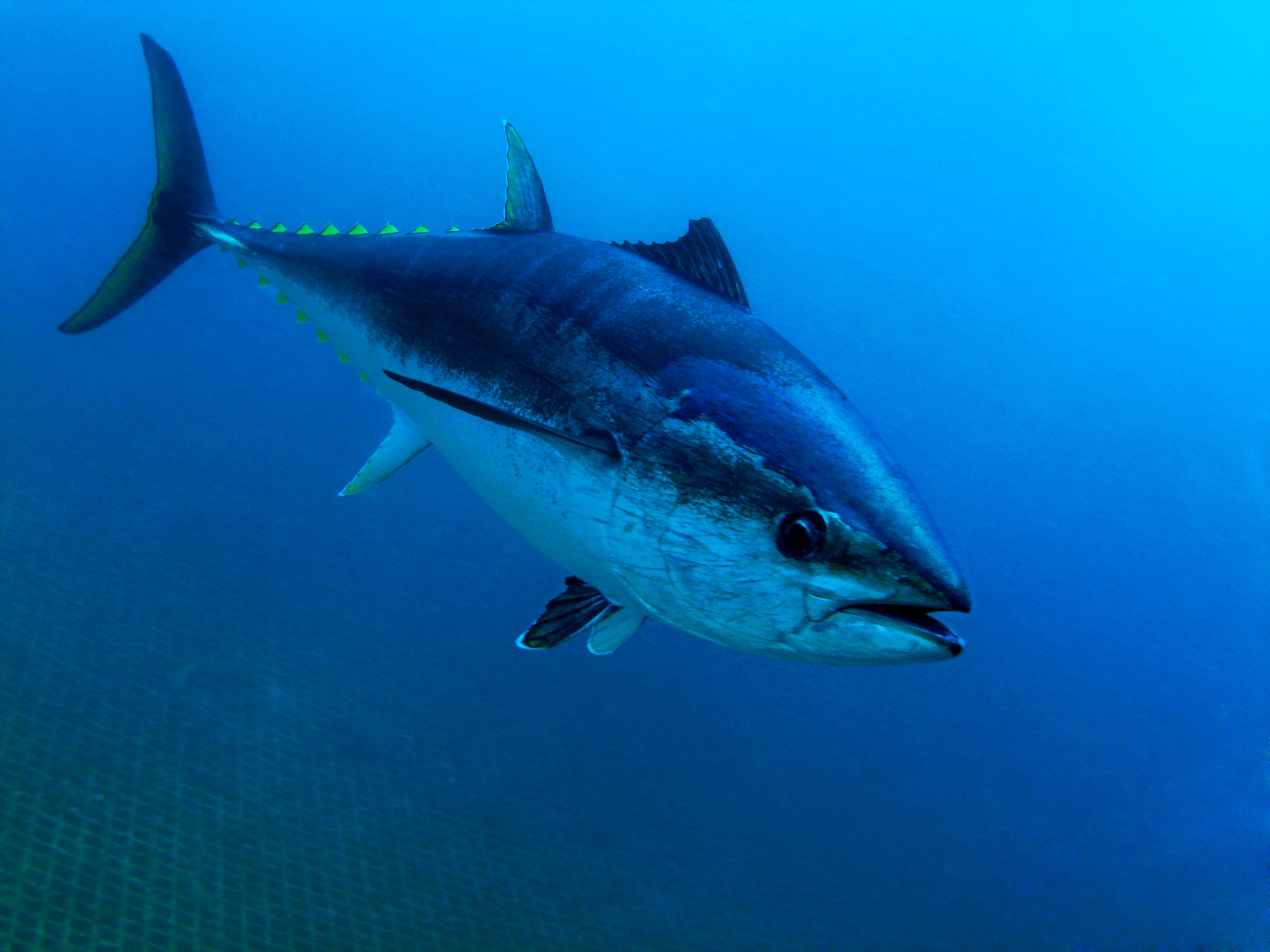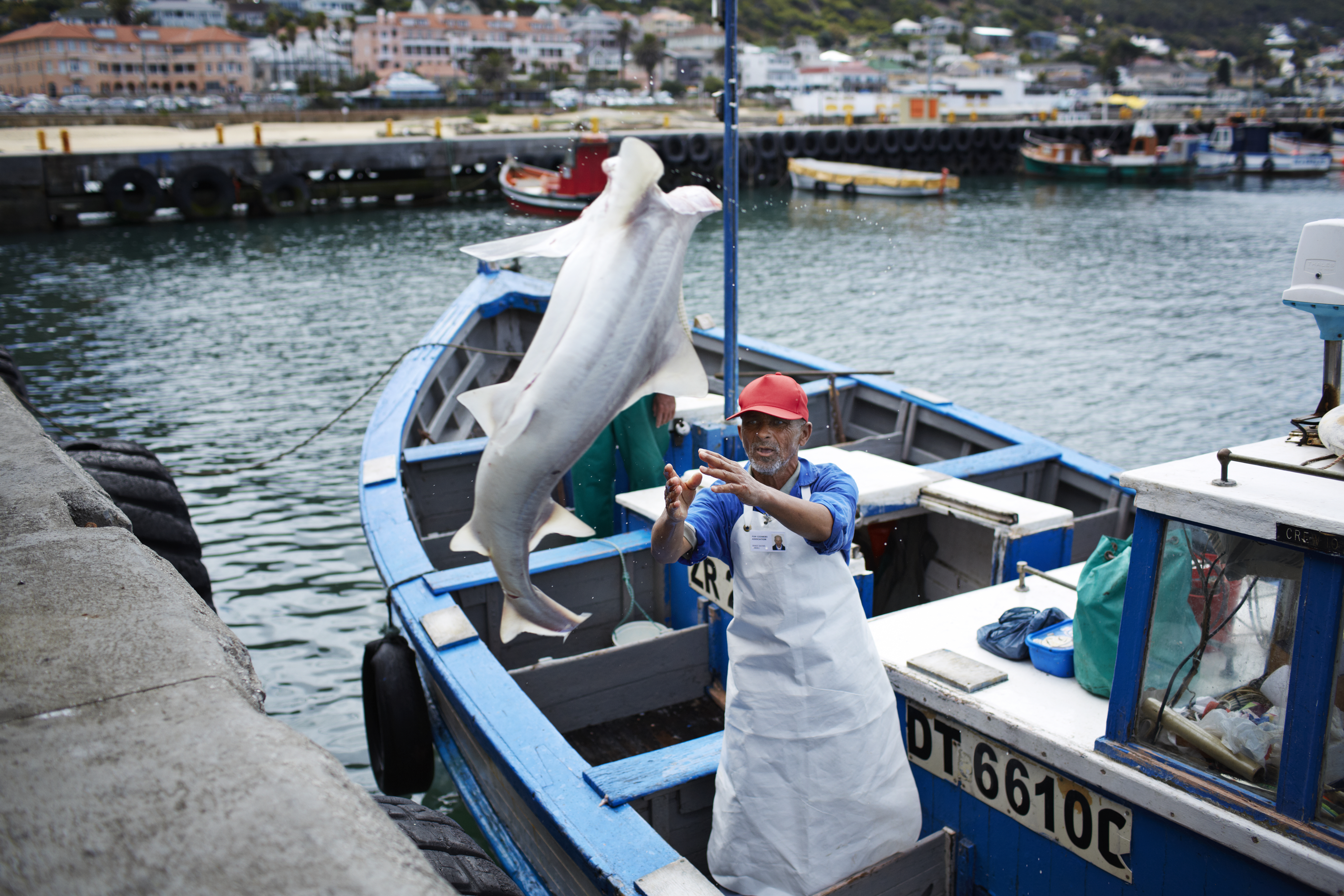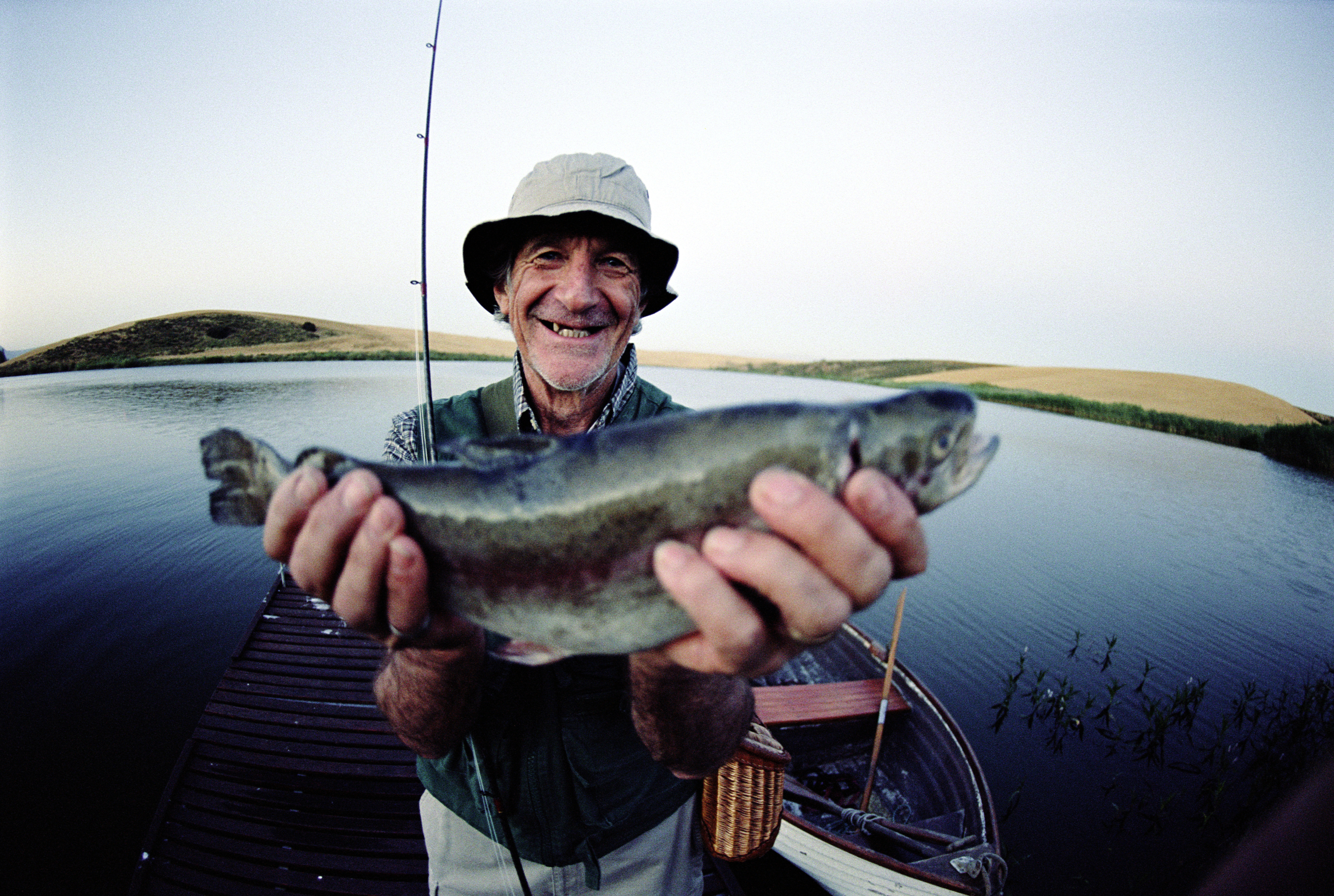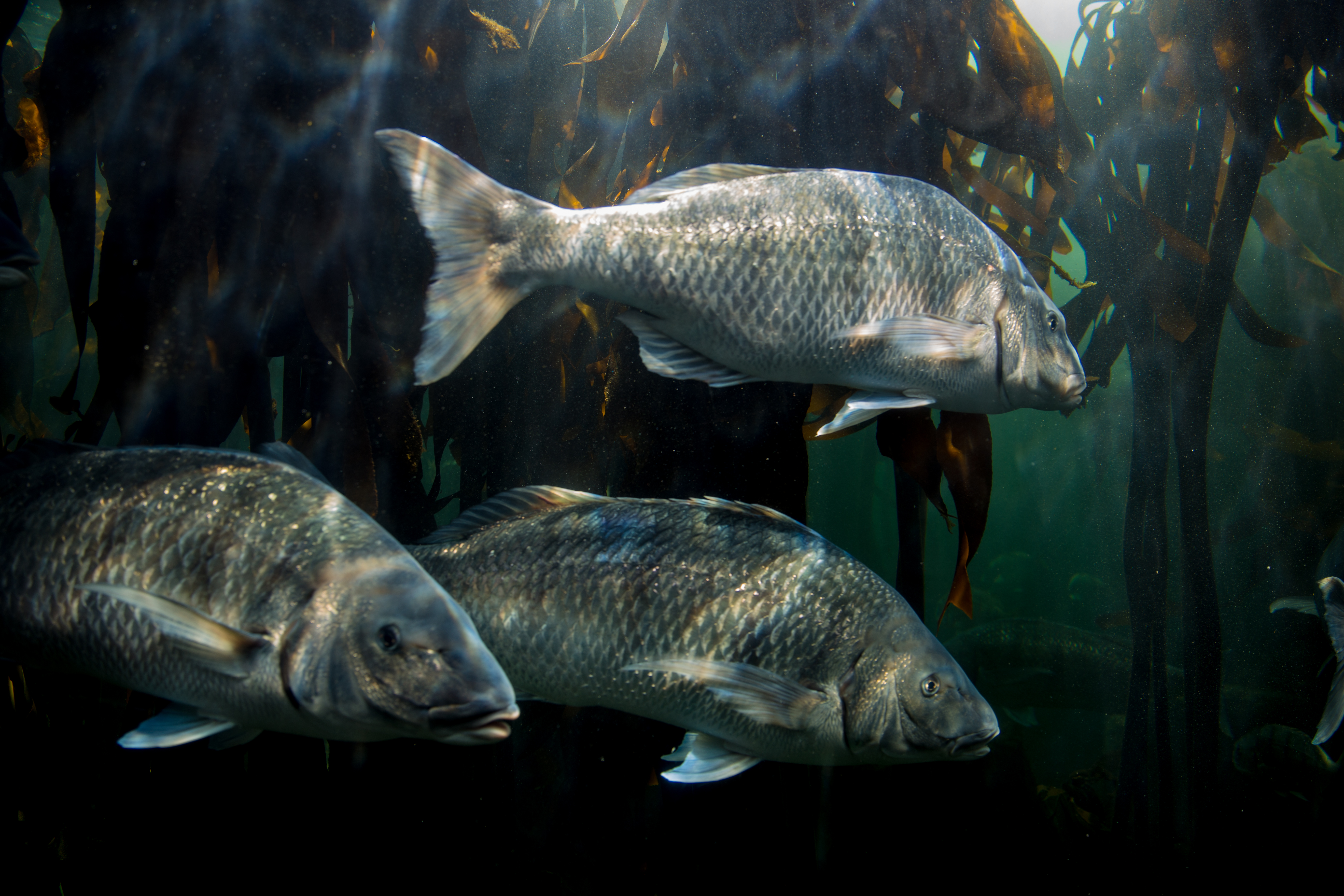
Overfishing
Many people in South Africa depend on fish as a source of food and income. In South Africa the fisheries industry is worth R6 billion and employs over 27 000 people. Overfishing and illegal fishing threatens the livelihoods of people employed in the industry. It also threatens vulnerable ecosystems and marine animals such as seals, coastal birds, and larger fish that depend on fish as a source of food.
There's only a limited amount of fish in our oceans, and those resources are becoming depleted.
According to the World Wildlife Fund (WWF) more than 30% of the world's fisheries have been overfished and is in need of strict management to restore them. Target fishing of top predators like tuna is changing marine communities. Because of commercial fishing, populations of the Atlantic Bluefin tuna have declined to the point where their survival as a species is threatened.
However we can solve this problem by reforming fisheries management, focusing on sustainable practices that conserve ecosystems, but also sustain livelihoods and ensure food security.
What is overfishing?
Overfishing is catching fish at a higher rate than which the fish can reproduce to replace what has been caught. Overfishing happens for many reasons including the lack of resources to enforce legislation, lack of oversight, lack of understanding of fish populations, and lack of protection of coastal areas.
Fishing used to be a sustainable industry, boats were smaller and couldn't go too far into the ocean, but, as technology improved, fisherman using bigger commercial trawling ships could go further into the ocean and collect a far larger number of fish. Once a fishing ship is in international waters, it becomes difficult to monitor them.
What are the effects of overfishing?
Overfishing is devastating for coastal and ocean ecosystems as well as the communities that rely on fishing as a source of income. Other problems associated with overfishing are:
- The eradication of marine and coastal life, many coastal birds, seals, other fish species and ocean mammals rely on fish for survival. If fish populations are reduced these animals are threatened with extinction.
- increased algae. Some algae is good for the marine ecosystem, but if it's allowed to grow uncontrollably and become an algae bloom it will harm the existing marine species.
- increased bycatch, which are species caught in fishing nets that we don't consume. This can include dolphins, turtles and other endangered species.
- possible financial losses for smaller scale fisherman and their families.
- a possible loss of a food source for poorer coastal communities.
What can I do to help?
The power is in your hands, here’s what you can do:
- You can buy sustainable seafood. This is seafood that is either caught or farmed in ways that are beneficial for the long term survival of that species and the environment.
- Buy fish that's in season. This helps to keep overfishing down and gives the fish time to replenish their numbers.
- Eat different types of seafood. This helps keep the demand of 1 particular fish down.
- Support sustainability groups such as the Wildlife and Environment Society of South Africa (WESSA) or the World Wildlife Fund (WWF).
Marine protected areas
Marine protected areas (MPA) are protected areas of seas, oceans, estuaries or large lakes. It's one of the most effective ways to protect marine life. CapeNature manages 6 MPAs in the Western Cape, namely Robberg, Goukamma, Stillbaai, De Hoop, Betty’s Bay and Rocherpan.
In South Africa, MPA’s are categorised into 3 classifications
- Restricted Areas
These areas are commonly known as ‘No-Take’ areas, where the extraction and harvesting of any marine or plant life isn't allowed. De Hoop falls into this category.
- Controlled Areas
These areas are also known as ‘Open’ areas. In these areas you're allowed to fish, go diving, spear fish, scuba dive and whale watch given that you have a valid permit.
- Restricted and Controlled Areas
Some MPAs have specifically demarcated areas that are zoned as both Restricted and Controlled areas.
The South African Seafood Initiative (SASSI)
To take action against overfishing, the World Wide Fund for Nature (WWF) established the South African Sustainable Seafood Initiative (SASSI) to inform and educate everyone about sustainable seafood.
The conservation status of different fish is indicated by the colour-coded SASSI list below. It helps us to identify which fish can be consumed, purchased and sold. It also shows which fish are threatened and can't be consumed or traded.
- Fish listed as green can be purchased, consumed, caught or sold.
- The fish listed in orange are species that have associated reasons for concern, either because the species is depleted as a result of overfishing and can’t sustain current fishing pressure, or the fishery that catches them may cause particularly severe environmental damage and/or has high bycatch, or the lifestyle of the species makes it vulnerable to high fishing pressure.
- The fish listed as red are unsustainable species, which are from collapsed populations or have extreme environmental concerns and/or lack appropriate management. This category lists types of fish which are illegal to buy or sell in South Africa (no-sale species). These species should never be bought by consumers.
Key to symbols used in lists:
| Symbol | Description |
|
|
Species appears on more than one list as it is caught by multiple fishing sectors |
|
|
Fishery improvement projects underway |
|
|
Speccially protected species that are not allowed to be taken out of the ocean at all |
|
|
|
|
Achovy |
Atlantic Salmon (Norway farmed) |
Abalone |
|
Angelfish |
Bigeye Tuna |
Bluefin Tuna |
|
Calamari/Squid (various species) |
Cape Dory |
Biscuit Skate |
|
Cape Rock Oyster |
Cape Horse Mackerel (SA mid-water trawl) |
Black musselcracker/Poenskop |
|
Carpenter |
Cape Rock Oyster ( Southern Cape hand collected) |
Dageraad |
|
Dorado |
Catface Rockcod |
Geelbek |
|
East Coast Rock Lobster |
Dorado |
Jacopever |
|
Gurnard |
Englishman |
Panga |
|
Hake (SA demersal longline) |
Hake |
Red Stumpnose/Miss Lucy |
|
Hake |
Horse mackerel |
Scotsman |
|
Herring (Mid water trawl) |
Kingklip
|
Shortfin Mako Sharks |
|
Hottentot |
Monk |
Silver Kob  (SA inshore trawl) (SA inshore trawl) |
|
King mackerel |
Octopus |
Silver Kob (SA line caught) |
|
Kingklip (SA demersal longline) |
Panga (SA line caught) |
Baardman/Belman |
|
Kob (SA farmed) |
Prawns (various species) |
Blacktail/Dassie |
|
Mussels (SA farmed) |
Red Roman |
Brindle Bass |
|
Oysters (SA farmed) |
Santer |
Bronze Bream |
|
Queen Mackerel |
Sole (East Coast) |
Cape Stumpnose |
|
Rainbow Trout (SA farmed) |
Swordfish (Sa pelagic longline) |
East Coast Rock Lobster (KZN) |
|
Sardines (SA) |
|
Galjoen |
|
Slinger (SA line caught) |
|
Garrick |
|
Snoek |
|
King Fish |
|
White mussel (SA hand collected) |
|
Natal Knife Jaw |
|
Yellowfin Tuna |
|
Natal Stumpnose |
|
Yellowtail |
|
Natal Wrasse  |
|
|
|
Potato Bass |
|
|
|
Red Steenbras |
|
|
|
River Snapper |
|
|
|
Seventy-four  |
|
|
|
Spotted Grunter |
|
|
|
West Coast Steenbras |
|
|
|
White Musselcracker |
|
|
|
White Steenbras |
| White-spotted smooth-hound shark |
Download a printable pocket-size SASSI card here.
For more information, visit the SASSI website at www.wwf.org.za/sassi Or, if you have specific questions, e-mail SASSI at sassi@wwf.org.za
Where to get fishing licenses
If you want to go angling, spearfishing, use a cast or throw net or catch fish from a vessel, you must apply for a recreational fishing permit. There are also certain regulations that apply to recreational fishing in South Africa’s marine and estuarine environments as well as scuba-diving and jetski use in Marine Protected Areas.
Please contact CapeNature or the Department of Agriculture Forestry and Fisheries if you need more information about fishing rights and permits. Or view frequently asked questions about fisheries.
Marine Week
National Marine Week is celebrated annually during the second week of October. This is an Environmental Awareness Campaign driven by the Department of Environmental Affairs. Its purpose is to create awareness of the oceans and coastal environment, the promotion of sustainable utilisation and conservation thereof, for the benefit of all.
This year the Department of Environmental Affairs, in partnership with the Two Oceans Aquarium, will visit rural schools within the Eden, West Coast and Overberg regions to teach them about rocky shore environment, adaptation of sea animals to their marine environment, marine litter and recycling. The Department of Environmental Affairs and Planning will be partnering with CapeNature with the rollout of their Marine Week programme in the Overberg region.
Both programmes are aligned with the National Department of Environmental Affairs’ (DEA) theme for 2018 is “Nature knows no waste!” (#NMW2018).










